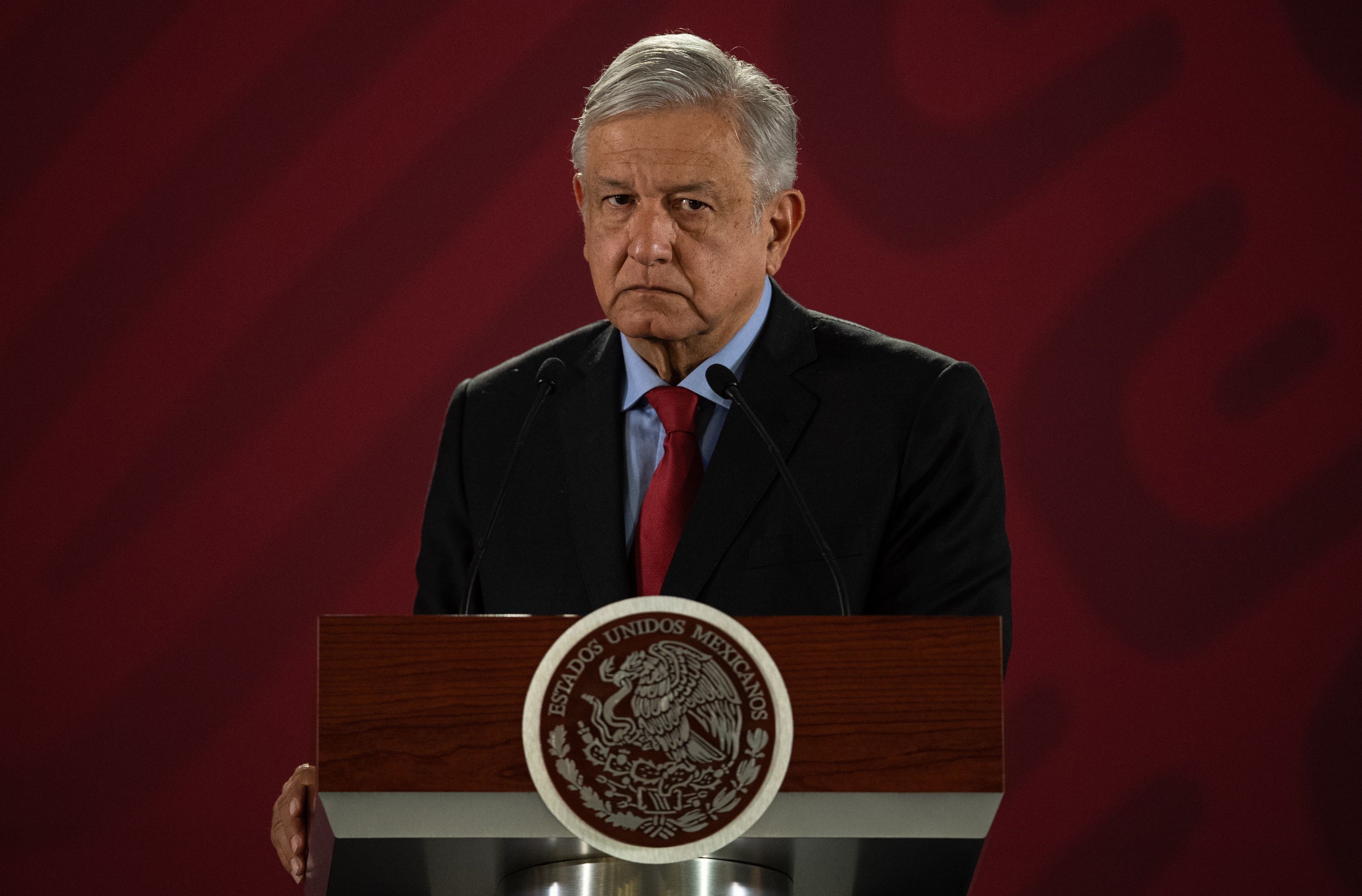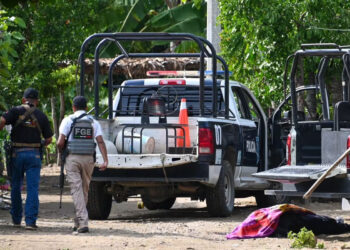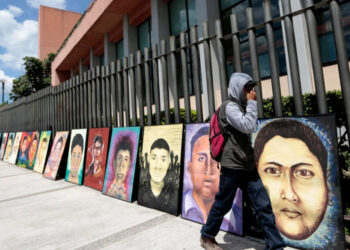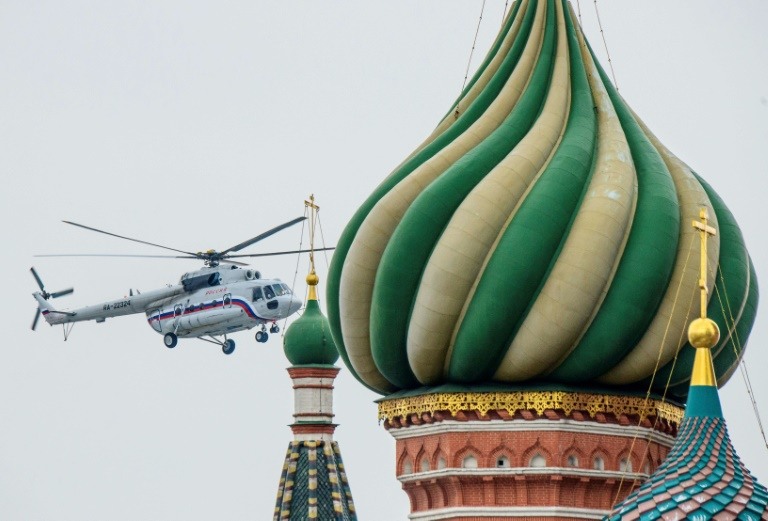The botched capture of Ovídio Guzmán (son of jailed drug lord ‘El Chapo’) in the Mexican city of Culiacán earlier this month was as unexpected as it was unsurprising. After hearing that its leader had been apprehended, the Sinaloa Cartel blocked all entry and exit routes in the city. It engaged in a short but intense conflict with the Mexican National Guard to secure Guzmán’s release.
The cartel used heavy weaponry, including a machine gun and a rocket-propelled grenade launcher, to outmuscle the National Guard. The conflict left eight dead and sixteen injured. The Mexican president, who was apparently unaware of the operation, ordered the release of Guzmán to avoid further bloodshed.
Mexican president says they had to release the son of drug kingpin Joaquin 'El Chapo' Guzman after an intense battle between security forces and cartel gunmen as 'the situation became very difficult' and 'many people were at risk' https://t.co/guzODO7t8i pic.twitter.com/uFAU0pDCfD
— Reuters (@Reuters) October 18, 2019
These events must be read in the context of a “drug war” that is entering its fifteenth year, characterized by egregious human rights violations upon civilians. Mexico is on pace to have more homicides in 2019 than any year on record. There are no signs of the violence abating.
Only recently, intense fighting between the Mexican army and organized crime in Michoacán and Guerrero led to 29 deaths. There have been atrocities in Coatzacoalcos, and there are unresolved cases relating to the disappearance of 43 students and deaths of 72 migrants. According to one study, around 99 percent of homicide cases are unsolved, placing Mexico fourth globally in impunity. It concluded that it would take 124 years to investigate all unresolved homicides in Mexico. In Chihuahua and Guerrero, where the violence has been particularly intense, the figure rises to over 400 years.
It is well known that torture in the criminal justice system is endemic. Further, there were 880 femicides in 2018, and 2019 has recorded 726 femicides so far. These are government figures, but under-reporting for fear of recriminations suggests that the real numbers are higher.
Mexico: Role for International Criminal Court?
To remedy the situation, various policies are discussed, including decriminalizing marijuana, stemming the flow of American guns, and investing more heavily in local, state, and federal police forces.
These are all good suggestions, but they can only succeed if Mexico’s power brokers coordinate their efforts. In this respect, it is worth considering the role of the International Crime Court (ICC).
Local human rights groups are in favor of intervention by the court. But its “complementary” jurisdiction can only be triggered in three ways: via referral by a State party (unlikely in Mexico’s case), referral by the U.N. Security Council (also unlikely), or via a proprio motu investigation by the ICC’s Office of the Prosecutor (OTP).
Mexican civil society has tried to bolster the case for such an investigation by documenting and reporting on atrocities committed by state and non-state armed forces. For example, NGOs, including the International Federation for Human Rights, have documented crimes that could be classed as crimes against humanity in the states of Baja California (2014), Coahuila (2017), and Chihuahua (2018).
If the ICC does decide to act, it would have to consider whether there is a “reasonable basis” to proceed to an official investigation (a more serious stage that could lead to the issuing of arrest warrants). But the ICC might not need to go that far to have an impact on the ground.
Positive or Negative Complementarity?
The 2013 OTP Policy Paper was clear that preliminary examinations – that determine whether a situation meets the legal criteria to warrant ICC investigation – were not just aimed at preparing for the releasing of eventual arrest warrants. The Prosecutor believes that such examinations may help to jump-start state-level criminal justice efforts and prevent further atrocities. In other words, the Prosecutor has envisaged that they could help the ICC function as a criminal justice watchdog.
A preliminary examination would see Mexico join Colombia and Venezuela as the other Latin American countries being examined. This would have a stigmatizing effect. Could it lead to an increased push to improve local justice efforts?

To ensure that a preliminary examination has the best chance to have positive effects, the OTP must get the government on board. One way it could do this is to support Mexico’s recent amnesty law that aims to release minor drug offenders from prisons. It could provide vocal support for the government’s transitional justice narrative (hugs-not-bullets). In exchange, the ICC could secure a commitment to pursue those most responsible for atrocities committed since 2006.
Preliminary examinations are informal, and their impact is hard to predict. Therefore, the ICC should only enter the Mexico quagmire if it is committed to taking the time to engage in an in-depth analysis of its likely impact “on the ground.” It must have a coherent strategy that includes effective communication with victims and local justice efforts. This inevitably brings us to a question of resources.
ICC’s Resource Constraints
In an ideal world, an ICC examination of Mexico would lead to positive national-level effects. However, the reality is that the OTP is over-stretched and under-resourced. It is engaged in ten preliminary examinations, including some of the world’s most sensitive and intractable conflict situations. In some of these situations, it is examining the role of the “Big Powers,” such as enhanced interrogation techniques by the CIA in Afghanistan and detainee abuse by U.K. armed forces in Iraq.
The OTP is also engaged in a number of formal investigations. It would not be unreasonable for the OTP to conclude that Mexico may simply be too big to take on. Opening an official preliminary examination will raise the victims’ already high expectations of the ICC. A failure to have any impact in Mexico is also likely to undermine the ICC’s work in other situations.
This does not mean, however, that the OTP should turn its back on Mexico. It can have an impact by raising its profile in the country. A visit by the OTP should be welcomed by a president that currently enjoys high approval ratings. The authorities can present the official reason for the visit as linked to the passing of the amnesty law and a discussion of Mexico’s transitional justice efforts.
It could provide the OTP with an opportunity to remind the government of its obligations and, perhaps, bolster national efforts at investigating, prosecuting, and punishing those most responsible for atrocities. At this stage, a “softly-softly” approach that obtains the government’s support stands the best chance of being successful.
Mexico needs serious solutions. The nature, scale, and gravity of the violence and the lack of national proceedings suggests the situation is admissible before the ICC. All powerbrokers in Mexico need to be mindful of the potential momentum that can be generated by international civil society in the realm of international criminal justice.
























